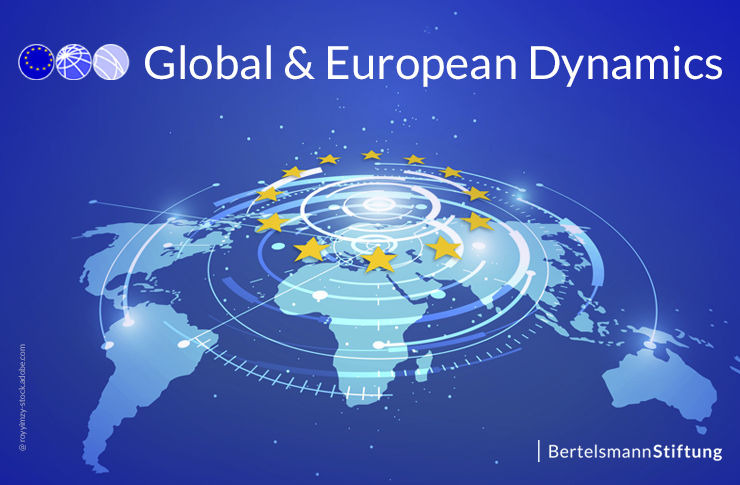
|
March 2024
Dear Readers,
Ongoing geopolitical uncertainty sees the EU seeking to stabilize its neighborhood and find reliable trade partners abroad. This edition of GED Monthly features a pair of articles on de-risking and China, with a look at deepening trade ties with ASEAN countries just a few weeks after German Chancellor Olaf Scholz toured the region. Additionally, don’t miss our analysis of the EU’s Critical Raw Materials Act, which aims to diversify the supply of important inputs.
On the topic of economic power, we also offer a review of the effectiveness of EU sanctions on Russia, with the 13th round having come at the end of February.
Dealing with geopolitical rivals is one EU priority, another is grappling with questions on potential enlargement to secure the European neighborhood. A new eupinions poll shows that 60% of Europeans want to see Ukraine join the EU in the coming years, but many still have concerns about the costs this would entail. Enlargement was the topic of discussion during one of our sessions at this month’s CEPS Ideas Lab in Brussels, along with Ukraine’s reconstruction and how cohesion policy can support the European Green Deal. Catch up on all three sessions in our conference recap article.
Finally, Portugal held snap elections this month, and with a slight shift to the right of the political spectrum, uncertainty looms for a traditionally social-democratic stronghold in the EU. Find our analysis of the results and their wider significance below.
With warm wishes,
Malte Zabel
Co-Director
Europe’s Future Program
|
|
|
|
|
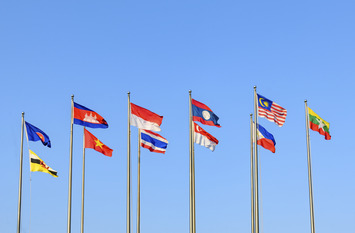
De-risking – ASEAN as an Option?
De-risking is the new buzzword for reducing dependencies on China. The recipe usually includes re-shoring production, increasing domestic stockpiling (e.g., of critical raw materials), and diversifying supply chains – with ASEAN frequently mentioned as a potential alternative, sometimes with a touch of overexuberance. However, it is important to keep expectations tempered, as ASEAN has some potential in this regard but is certainly not "the next China".
Read more
|
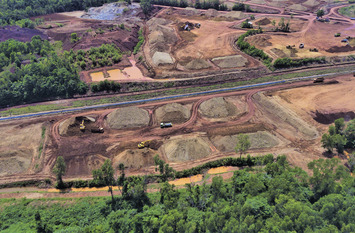
Building On the EU Critical Raw Materials Act
The EU has adopted its Critical Raw Materials Act (CRMA), aiming to diversify its supplies of these crucial inputs. This is an important step towards reducing dependencies that could threaten the EU’s green and digital transition and make it vulnerable to economic coercion. To succeed, this push for economic security should be linked to a stronger external agenda that aligns supply security with exporting countries’ industrialisation goals.
Read more
|
|
|
|
|

Portuguese Elections: Right Shift & Political Uncertainty
In Portugal, a narrow win for the Democratic Alliance and a surging far-right signals a political shift. As the centre and far-right celebrate, the Socialist Party contemplates its loss. This pivotal election, amid scandals and crises, sends the nation into uncertainty and hints at broader implications for Europe's political landscape and the left's standing.
Read more
|
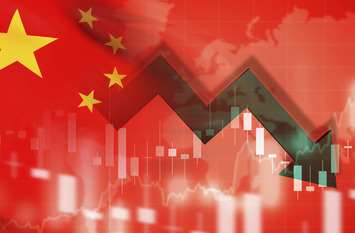
Three Reasons why China is in Serious Trouble
At the “Two sessions” earlier this month, the Chinese premier set the growth target for China’s economy at 5 per cent for 2024. Given the weakening economy and geopolitical tensions, it is highly uncertain if this ambitious goal will be achieved. But this might be of secondary importance anyway, as China also finds itself in a difficult situation, which GDP growth alone can hardly solve.
Read more
|
|
|
|
|
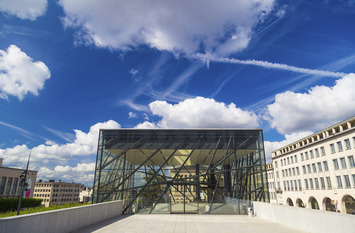
The Bertelsmann Stiftung’s Europe’s Future Team at CEPS Ideas Lab 2024
On March 4-5 at the Center for European Policy Studies (CEPS) Ideas Lab, the Europe’s Future team presented results from the latest eupinions poll on EU citizens’ attitudes toward the war in Ukraine, discussed Ukraine’s reconstruction and sustainable recovery, argued for a future role for cohesion policy in an inclusive transition through the European Green Deal, and also forecasted key questions impacting the future of the EU.
Read more
|
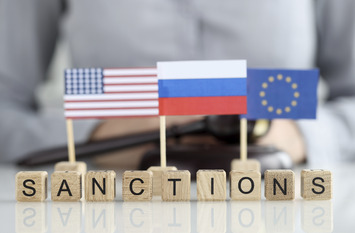
Sanctions Against Russia – Limited Success, but Not Fruitless
Immediately after the Russian attack on Ukraine, the EU adopted its first package of sanctions against Russia. The 13th package followed on February 21, 2024. The ultimate goal of these sanctions – i.e., ending the war – has not yet been achieved. Nevertheless, the Russia sanctions imposed by the EU and its allies have not been unsuccessful.
Read more
|
|
|
|
|
In the next edition
|
|
|
|
Bertelsmann Stiftung’s Europe program advocates for a united European Union that acts in solidarity both internally and externally and helps shape the world of tomorrow based on its values. In support of this objective, we provide background, analysis and insights.
To keep abreast of our work, please keep an eye on our blog: globaleurope.eu
Or follow us on social media: http://twitter.com/GED_Tweet
|
|
|
|
|
|
|
|
|
|
|
|